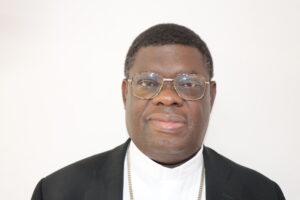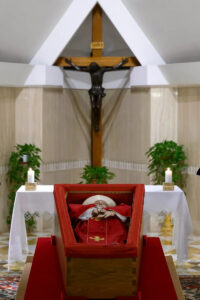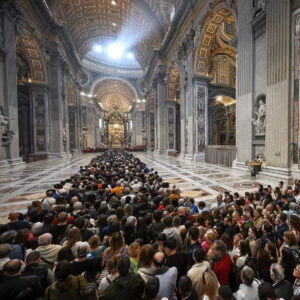VATICAN: At Close of Synod on Synodality, Local Churches Urged to Embrace Consultation and Discernment

Sr. Jecinter Antoinette Okoth, FSSA
The three-year Synodal journey themed ‘For a Synodal Church: Communion, Participation, and Mission,’ concluded on Sunday, October 27, with a call to all local Churches across the globe to embrace consultation and discernment which guided the entire process of the XVI General Ordinary Assembly of the Synod of Bishops.
In the Final Document after the month-long assembly that took place from 2-27 October in Rome and brought together delegates from across the world comprising Cardinals, Bishops, Clergy, religious, lay men and women as well as the youths, the participants appreciated the methodology that was applied in the entire journey emphasizing the need of its continuity for the transformation of the Church.
“As members of the Assembly, we feel it is our responsibility to promote it (synodality) as synodal missionaries within the communities from which we come,” the final document read in parts pointing out that “The local Churches are asked to continue their daily journey with a synodal methodology of consultation and discernment.”
According to the participants as stressed in the document, local churches should identify concrete ways and formation pathways to bring about a tangible synodal conversion in the various ecclesial contexts such as parishes, Institutes of Consecrated Life, and Societies of Apostolic Life, movements of the faithful, dioceses, episcopal conferences, and groupings of Churches among others.
Moreover, synod delegates suggest that evaluation of the progress made in terms of synodality and the participation of all the baptized in the life of the Church should also be envisaged as they recommend to the episcopal conferences and synods of the churches sui iuris (of one’s own right) “to allocate personnel and resources to accompany the pathway of growth as a synodal Church in mission and to maintain contact with the General Secretariat of the Synod.”
The synodal call of Communion, Participation, and Mission is based upon a shared baptismal identity which the 355 delegates from countries around the world say is rooted in the diversity of contexts in which the Church is present and finds unity in the one Father, one Lord, and one Spirit.
“It challenges all the baptized, without exception: “The whole People of God is an agent of the proclamation of the Gospel. Every baptized person is called to be a protagonist of the mission since we are all missionary disciples,” the Final Document highlights pointing out that the synodal journey directs the people of God “towards a full and visible unity of Christians, as was witnessed by the presence of delegates of other Christian traditions.”
In their reflection, the participants for the synod revealed that the Second Vatican Council was like a seed thrown onto the field of the world and the Church which has steered the three-year journey.
“The daily life of believers, the experience of the Churches in every people and culture, the many testimonies of holiness, and the reflection of theologians represented the soil upon which it (seed of Second Vatican Council) has sprouted and grown,” the participants noted in the document adding that, “The Synod 2021-2024 continues to draw upon the energy of that seed and develop its potential.
Therefore, the synodal journey is putting into practice what the Council taught about the Church as a Mystery and the Church as People of God, called to holiness through continual conversion from listening to the Gospel.


